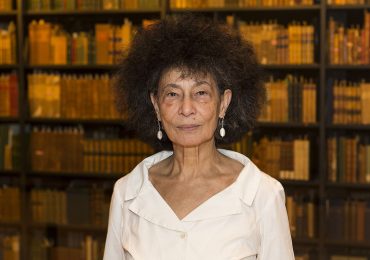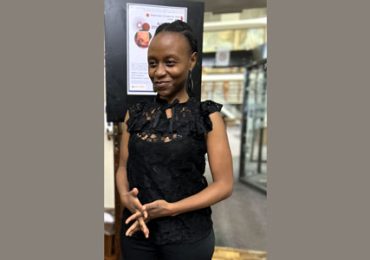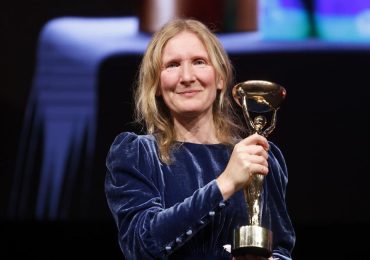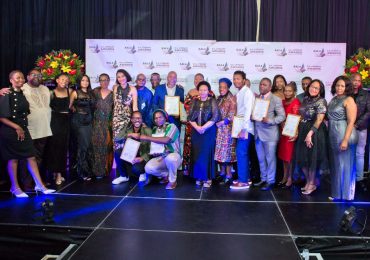Tony Morphet, who died in Cape Town on 2 May, aged eighty-one, led a professional life—as teacher, university lecturer and activist, literary and art critic, professor of adult education, literacy specialist, and consultant to community organisations—that was marked by a rare capacity for friendship. Versatile and incisive as an intellectual, Tony could identify an issue or a problem before anyone else did, and he did so with unfailing warmth and generosity.
His intellectual formation in the late nineteen-fifties and early nineteen-sixties at the University of Natal, Pietermaritzburg and University College, London was centred on left-liberal politics and literary studies. At seventeen he joined the Liberal Party, working closely with Alan Paton and Peter Brown. After the party disbanded itself in 1967, he remained independent and by the mid-nineteen-seventies was associated with the intellectual work and activism of Richard Turner. Acknowledging the influence of Isaiah Berlin, Tony was unapologetically liberal, a social democrat who kept his distance from Marxism but he had even less sympathy for neoliberalism.
Tony’s astute intellectual-biographical essay for Ravan Press’s reissue of Turner’s The Eye of the Needle (2001; the book was banned on publication in 1972) serves as the introduction to Turner’s radical analysis of the prospects for participatory democracy in South Africa. A further essay, ‘Intellectual Reach’, is included in a 2015 edition he co-edited with Rosalind Morris for the University of Chicago Press. Tony was one of two literary executors for Turner’s estate.
When the Soweto rebellion of 1976 erupted, as a student I recall Tony reluctantly accepting the megaphone on the Durban campus of the University of Natal, telling the crowd of mainly white students that this was not their uprising, but that they should try to understand where they stood in relation to it. The position was in keeping with both Turner and Biko.
As a lecturer in English at Natal (1963–1975) he was immensely influential, teaching across the board while leading conversations on a curriculum that spoke to the times. It was Tony who persuaded the department to prescribe JM Coetzee’s explosive anticolonial first novel, Dusklands. Not that his teaching proselytised for anybody’s canon. I remember his persuading Durban students in 1975 that Gulliver’s Travels was a profoundly progressive text, except for Swift’s disappointingly conservative attitude to science.
Literary studies during Tony’s student years involved lively, close analytical reading, informed by a strong ethical vision. These disciplines served him just as well when he later wrote on contemporary art and architecture, but it is not surprising that as literary studies became more polarised and professionalised through the nineteen-seventies and nineteen-eighties, Tony moved on to adult education. He became Director of Extra-Mural Studies at Natal before moving to the University of Cape Town, where after some persuasion he became Head of the Department of Adult Education. A short-sighted exercise in rationalisation by university management prompted him to take early retirement in 1999.
In moving from English to broader educational terrain, Tony kept faith with his roots. As critic, teacher and thinker he had a metaphorical way of looking at the world. He also became an influential presence in literacy studies, writing a remarkable review from the point of view of literacy work of Not Either an Experimental Doll: The Separate Worlds of Three South African Women, edited by Shula Marks (1987).
His literary gifts made him a sought-after reviewer and a commentator on the emerging zeitgeist, what he called the ‘cultural settlement’. Witty, insightful and generous, he understood the tendency of a work, the potential that was opening between the lines. He wrote an illuminating account of what he called ‘stranger fictions’, which were fictions about strangers (the ubiquitous South African other) and fictions that were themselves estranged, by Nadine Gordimer, JM Coetzee and Ivan Vladislavić. He wrote appreciatively but not uncritically on Albie Sachs, Njabulo Ndebele and Joel Matlou. Even Tony’s titles had a way of finding the loose nut in the machinery and identifying in it the promise of something new: ‘the prying game’, ‘after solidarity’, ‘struggle as a site of education’.
Much of Tony’s work was behind the scenes, however, writing policy reviews, evaluations and reports for foundations and NGOs, running planning workshops for, and serving on the Boards of colleges and community organisations. His MPhil was on the perennial conundrum, one that the managerial academy has all but abandoned: ‘University Involvement in Adult Worker Education.’ It was a theme that had lived with him since the days of his friend Rick Turner, who persuaded his Philosophy class to involve themselves in the nascent trade union movement. It speaks volumes for Tony’s academic integrity that he wrote but never submitted his PhD, because by the time he had finished, he no longer believed in it.
It was Tony Morphet’s gift to make every interaction an occasion for discovery and for friendship. He had that rare ability that belongs to certain special human beings who leave everyone persuaded that each of us has been acknowledged and chosen. He shall be missed.
Tony Morphet is survived by his partner, Ingrid de Kok, three children, three grandchildren, and his brother, Michael.
A memorial service for Tony Morphet was held on 14 May 2021. You can watch the service here.
- David Attwell is Professor in the Department of English and Related Literature at the University of York. He is the co-editor of The Cambridge History of South African Literature and the author, most recently, of The Poetics and Politics of Shame in Postcolonial Literature.





